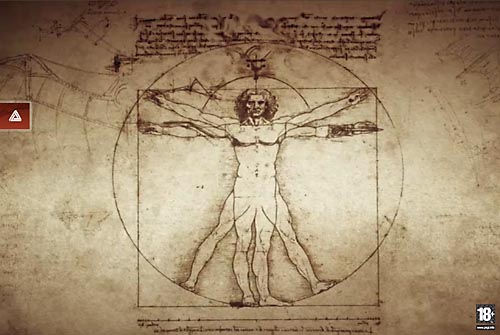We left Cologne just when the Gamescom spectacle was getting started. We were there for the Game Developers Conference. We did take a stroll through the fair but were not impressed. It was just a lot of big, fancy and loud booths advertising videogames that are half-broken, outdated and badly designed. Last year’s Independent Games Festival winner Petri Purho made the depressing observation that you could fund development of 20 indy games for the price of one of those booths. Indeed. For the price of one booth at Gamescom, you could revolutionize the entire games industry! But who cares?
While there were not many independent developers presenting at the conference, the few that were there quickly found each other. It’s nice to know that there is a little underground group of people who all resist the big games machine. Together we can look down on the suits with a big grin while they are desperately trying to keep their multi-million Dollar enterprises afloat.
We had a little booth at the GDC, thanks to the efforts of Elfya van Muylem at IBBT, where we were showing The Path (on the iMac, by the way, that also stored all of the production files of our upcoming project Fatale -but nobody saw it). Lots of people came up to us. Players of the game, people who had read about it, students, journalists, game developers, business people. It was fun to talk to them. Made us feel our work really means something to some. So thanks to all of you, in case you’re reading this (leave a comment here!  ).
).
As a result, we didn’t see a lot of lectures. But of the few we saw, David Cage’s sermon about the future of videogames probably made the biggest impression. If only because he was almost saying word for word, the kind of things we have been talking about on this blog for years. But in a “for dummies” kind of style, which wasn’t to the liking of all attendees, but still managed to irritate a few sufficiently to make them leave the room.
Basically, Mr Cage was pointing out that the games industry is on a crossroads. Depending on the choices we make now, it will continue to be a successful children’s toy production industry or it could become a mature medium on the level and with the diversity of cinema. His references to cinema were perhaps a bit excessive (personally, I think, we can surpass cinema with a medium that is much more adequate to talk about complex contemporary issues). But in the light of his own work, this is understandable. And his continuous praise of thatgamecompany‘s Flower made it clear that he is broad-minded enough to recognize applications of the theory that are very different of his own.
Speaking of Flower, we also attended Kellee Santiago’s post-mortem presentation of the PSN game, which had drawn quite a decent crowd. She showed several prototypes of the game, made in Processing, Flash, XNA and on the Playstation 3 itself. And she finally explained why Flower changes so drastically half way through -something that had always mystified me.
We had a hell of time hanging out with her in a typical German brewery/restaurant with fellow indies (where the Koelsch beer eternally flows) and on the roof of Microsoft’s fancy new building (witnessing the joint attempts of suits and nerds to combine coolness with opportunism) where we met Steven -Slow Gaming- Poole too. That was nice! 
The next day, Miss Santiago reappeared in a panel awkwardly called “Designing Women”, also featuring Tracy Fullerton and Sheri Graner Ray. It’s quite sad that women in games (both as players and as creators) continues to be an issue, even if most of the women on the panel do see it in a broader context of lack of diversity, both in development teams as in the games being produced. Which connects the issue quite neatly with David Cage’s plea for greater variety as a requirement for maturity. Ergo: more femininity in games equals more maturity.
It remain a question if anyone in the games industry even listens to these voices. We have heard the same comments and ideas for years now, and if there has been any evolution, it seems to be an evolution further away from diversification, and deeper into the niche of games for 16 year old boys (or grown men pretending to be). The few exceptions that exist (Wii & DS, independent games, casual games, iPhone games) always clearly manifest themselves as different, as a break with the industry to some extent, as an alternative, while the “mainstream” continues to dig a deeper and deeper hole. Perhaps GDC-founder Chris Crawford will finally be proven right. He has always maintained that the realisation of the potential of the interactive medium will happen outside of the games industry.
The last session we attended was Peter Molyneux’s presentation about choice in (Lionhead’s) games. The thing that bothered me about his otherwise amusing presentation, was that he focussed so much on the formal aspects of game design. Which was confirmed by him calling choice a mechanic. He doesn’t seem to be interested in the meaning and content of the particular choices presented in his games, but only in their emotional effect. Seeing choice as a mechanic does nothing to change one of the major flaws of videogames (and one of the major elements that reduces the target audience to teenage boys): the fact that games are power fantasies where apparently insecure humans can get the illusion of control. I can’t help but find that a sad situation.
Which reminds me of the pathetic display that is grown-ups pretending to play music to the antique tunes of the Beatles on plastic toy guitars. Instead of learning an actual instrument and experiencing the pure joy of interpretation, we can now happily be reduced to sacks of skin and bones that can pretend to be a star with no need to learn any useful skill whatsoever.
This is what the games industry seems to have become: a pacifier for the powerless. No inspiration is required, no imagination is desired. You don’t need to be able to do anything, be anyone. Just connect to the machine and it will make you feel like you are a hero, in control of an empire, on top of the world. You and the legions of pathetic nerds, too lazy or timid to actually do something with their lives, content to just sit there and pretend it all away, proud of the billions upon billions that the industry spends on keeping them sedated.









